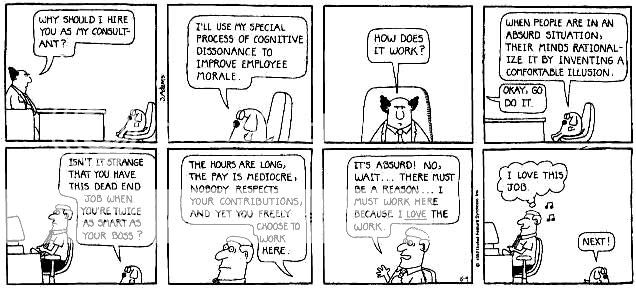ShawnChris13
Member
- Nov 12, 2013
- 652
- 46
- 16
If you're not familiar with the term, Cognitive dissonance - Wikipedia, the free encyclopedia will give you a brief overview.
I find that while debating points and counterpoints, it is far too common for people to be angry. I believe cognitive dissonance leads to most of the anger we experience when confronted in our beliefs.
I believe we could improve political debate by raising awareness of this happenstance so that people can stop and look at what they're frustrated about. Most frustration lies in the facts that are held within other peoples perspective.
I find that while debating points and counterpoints, it is far too common for people to be angry. I believe cognitive dissonance leads to most of the anger we experience when confronted in our beliefs.
I believe we could improve political debate by raising awareness of this happenstance so that people can stop and look at what they're frustrated about. Most frustration lies in the facts that are held within other peoples perspective.




